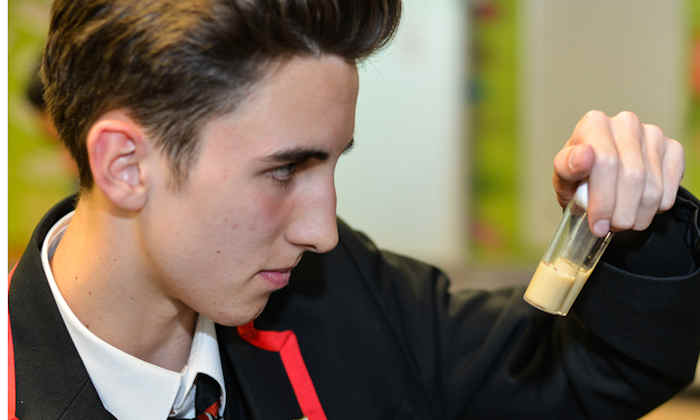The flies have it – affordable, memorable micro-experiments for schools
02 Sep 2019
A public engagement story from our Manchester Fly Facility – tell us yours or get involved

Schools are inspiring their children to become scientists thanks affordable, feasible and memorable micro-experiments designed by our Manchester Fly Facility.
The droso4schools initiative, driven by Sanjai Patel and Professor Andreas Prokop, promotes the use of the fruit fly Drosophila melanogasterfor in teaching curriculum-relevant content in school biology lessons.
Through long-term collaboration with teachers and University student placements in schools, they’ve developed seven biology lessons with support materials and educational films.
All the resources, explained and supported through the droso4schools website, are free to download – by no less than 20 nations across six continents, so far.
And the films – also translated into Spanish, Indonesian and Arabic – have had 30,000 views.
There’s also an active programme of school visits and teacher training, which in turn provide new ideas for the droso4schools initiative.
“My pupils got to experience hands on what it’s like to ‘be a scientist’ and the opportunity to work with living organisms and performing their own ‘mini-experiments’, was extremely engaging for them,” one teacher from Southport said.
“They loved seeing the bigger picture as to how laboratory research can impact human quality of life. It linked brilliantly with practical-based questions in the new GCSE specification, and I really think it inspired pupils to take a Science A Level.”
Since leading one of the first UK Beacons for Public Engagement, our University has gone on to be awarded a Gold Watermark from the National Co-ordinating Centre for Public Engagement and we are celebrating that journey.
Now we’re taking up the challenge of playing a leading role as a civic university, as well as addressing key national and international agendas, such as the United Nations Sustainable Development Goals.
Our vision includes creating a more permissive engagement culture; developing more inclusive practices; co-creating innovative approaches and working in partnership with more diverse audiences to help realise our University’s strategy for social responsibility, research and discovery, and teaching and learning. You too can share, inspire and involve our community partners and public audiences in Manchester, across the country and around the globe.
For this we need our staff and students to get involved – tell us your engagement stories.
For more information, visit:
